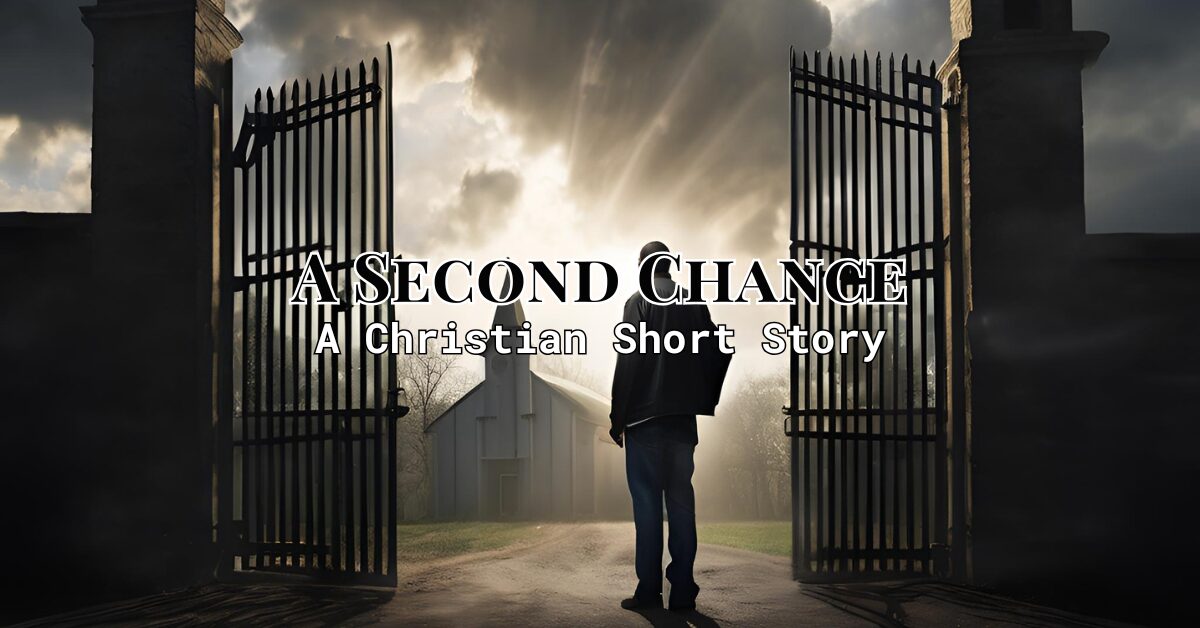In the spiritual journey of many believers, Christian fasting emerges as a profound and transformative practice designed to deepen one’s relationship with God. At its core, Christian fasting is more than abstaining from food or drink; it’s a sacred time of surrender and sacrifice, where the physical cravings of the body are set aside to seek spiritual renewal and clarity. This ancient discipline, rooted in Scripture and practiced by countless followers throughout history, serves as a powerful tool for personal reflection, prayer, and drawing closer to the divine.
The essence of Christian fasting lies not just in the act of fasting itself but in its purpose—to redirect the heart away from worldly distractions and towards God. Whether it’s seeking guidance, repentance, or simply to strengthen one’s faith, fasting offers a unique pathway to spiritual growth and reliance on God’s provision. It is a reminder of one’s dependence on God, symbolizing a spiritual hunger that goes beyond physical sustenance.
As we delve into the practice of Christian fasting, it’s crucial to approach it with a heart open to what God wants to reveal. This blog post aims to explore the biblical foundation of fasting, its different forms, and the intentions behind them. By understanding the significance and the correct approach to this spiritual discipline, believers can experience a deeper communion with God, gaining strength, insight, and a renewed sense of purpose. Join us as we uncover the transformative power of Christian fasting and how it can bring us closer to God, enriching our spiritual lives and enhancing our faith journey.
Related: 12 Ways on How to Get Closer to God
The Biblical Basis for Christian Fasting

Christian fasting holds a significant place within the tapestry of spiritual practices, deeply rooted in Scripture and exemplified by many of the faith’s most revered figures. Understanding the biblical foundation of fasting not only enlightens believers on its importance but also provides a model for how it can be applied in their lives today.
Key Scriptures Discussing Fasting
The Bible offers clear guidance and insights into the practice of fasting, showcasing its role in a believer’s life. In Matthew 6:16-18, Jesus instructs on fasting, emphasizing the importance of sincerity and humility, advising against fasting as a display for others but as a private act of devotion to God. This teaching underscores fasting’s purpose: not as an outward show of piety but as an inward gesture of purification and dedication.
Acts 13:2-3 depicts the early church engaging in fasting and prayer before making significant decisions, demonstrating fasting’s role in seeking divine guidance and support. These passages, among others, highlight fasting as a deliberate and meaningful discipline that enhances spiritual connection and reliance on God.
Related: How to Read the Bible
Examples of Biblical Figures Who Fasted
The Bible is replete with examples of individuals who fasted during critical moments, seeking God’s intervention, wisdom, or strength. Jesus fasted for 40 days and nights in the wilderness, preparing for His ministry and demonstrating the power of spiritual sustenance over physical nourishment (Matthew 4:1-11). Esther called for a fast among the Jewish people before approaching the king to save her people, showing fasting’s role in seeking God’s favor and support in times of danger (Esther 4:16).
Daniel’s fast, known for its dietary restrictions, was a sign of mourning and a plea for understanding and vision from God, which resulted in profound revelations and guidance (Daniel 10:2-3). These examples not only illustrate the diverse reasons for fasting but also the profound outcomes associated with this practice.
Through these scriptural accounts and examples, Christian fasting is shown to be a powerful spiritual tool, used not just for personal edification but as a means of aligning closely with God’s will and purpose. These biblical bases for fasting serve as a guide for believers, encouraging them to incorporate this practice into their spiritual lives for deeper communion with God.
Types of Fasts and Their Purposes

Christian fasting takes various forms, each with its unique purpose and spiritual significance. Understanding the different types of fasts and their intended outcomes can help believers choose the approach that best aligns with their spiritual goals and physical capabilities.
Complete (Absolute) Fasts vs. Partial Fasts
Complete (Absolute) Fasts
This type of fast involves abstaining from all food and drink, except for water, for a specific period. It’s considered one of the most intense forms of fasting and should be undertaken with caution, usually for short durations. The purpose behind an absolute fast is often to seek urgent clarity from God or to dedicate oneself fully to prayer during a critical time.
Partial Fasts
Partial fasting involves restricting certain types of food or eating at limited times. A well-known example is the Daniel Fast, where participants abstain from meats, sweets, and bread, consuming only vegetables and water to draw closer to God. This type of fast is often more manageable over longer periods and can be tailored to individual health needs and spiritual objectives.
Alternative Christian Fasting
You are not completely required to starve yourself to fast. Christian fasting can also be done in different ways. There are other ways:
- No electronic devises
- No entertainment (but reading the Bible, perhaps)
- No processed foods
- No sugary food
- No social media
- No sex
- No bad habits
- Etc.
Fasting can be from many things. The most important thing is that the method you choose is one that constantly reminds you of your purpose of fasting.
Specific Purposes for Fasting
Seeking Guidance
Christian fasting is often undertaken to seek divine guidance about specific decisions or directions in life. By setting aside physical needs, believers can focus more intently on listening for God’s voice and discerning His will.
Repentance
Fasting can serve as an act of repentance, a physical expression of sorrow for sins and a commitment to spiritual renewal. It’s a way of humbling oneself before God, seeking forgiveness, and purifying one’s heart.
Spiritual Warfare
In times of spiritual struggle, fasting can be a powerful tool for believers. It strengthens one’s spiritual resolve, equips believers with divine power, and can bring breakthroughs in difficult situations.
Getting Closer to God
Christian fasting can have the sole purpose of getting closer to God when you feel like you have gotten further away from Him. Or simply as a tool to get closer to God if you are a new Christian who want to take the first steps to have a daily relationship with Him.
Christian fasting, in its various forms, is a profound way to deepen one’s faith, seek divine intervention, and enhance spiritual well-being. Whether through complete or partial fasts, the practice is a testament to the believer’s dedication to growing closer to God, serving purposes from seeking guidance and repentance to engaging in spiritual warfare. As one engages in this sacred discipline, it’s essential to approach it with a clear intention and a heart open to whatever God may reveal.
Preparing for a Fast

Engaging in Christian fasting is a significant spiritual undertaking that requires careful preparation, both spiritually and practically. Proper preparation ensures that the fast is not only a meaningful spiritual experience but also a physically safe practice.
Spiritual Preparation
Setting Intentions
Before beginning a fast, it’s crucial to clarify your spiritual intentions. What are you seeking through this fast? Guidance, healing, spiritual renewal, or perhaps intercession for others? Clear intentions will guide your prayers and reflections during the fasting period.
Prayer
Prayer is an essential component of preparing for a fast. It’s a time to ask God for strength, guidance, and a receptive heart. Pray for the discipline to complete the fast and for the spiritual insights it may bring. This is also a time to commit your fast unto God, ensuring that your efforts are aligned with His will.
Scripture Study
Studying scripture relevant to fasting and your spiritual intentions can provide encouragement and clarity. Verses like Matthew 6:16-18, Isaiah 58:6-11, and Joel 2:12-13 can offer guidance and strengthen your resolve.
Practical Preparation
Health Considerations
Before embarking on a fast (if you should choose a type of fasting that is about your intake of food), consider your physical health. Consult with a healthcare professional if you have any existing health conditions or concerns. Ensure that the fast you choose will not harm your body, as the goal is spiritual growth, not physical detriment.
Deciding the Length and Type of Fast
The type and duration of the fast should reflect your spiritual goals and physical capacity. Whether you choose a complete or partial fast, such as the Daniel Fast, determine a timeframe that is challenging yet manageable. Consider starting with shorter periods if you are new to fasting and gradually increasing the duration as you become more accustomed to the practice.
Preparing for Christian fasting involves thoughtful consideration of both your spiritual intentions and practical realities. By setting clear spiritual goals, engaging in prayer and scripture study, and considering your health and the specifics of your fast, you are laying a solid foundation for a deeply meaningful and spiritually enriching experience.
Fasting with Prayer and Meditation

Christian fasting is a spiritual discipline that goes beyond mere abstention from food or other items; it is deeply intertwined with prayer and meditation, forming a triad that strengthens one’s spiritual life. The combination of fasting, prayer, and meditation opens a unique avenue for believers to draw closer to God, seeking His guidance, strength, and presence in a more focused and profound way.
The Role of Prayer and Meditation in Fasting
A Conduit for Spiritual Communication
During fasting, prayer serves as the primary means of communication with God. It is through prayer that we express our intentions for the fast, seek forgiveness, intercede for others, and listen for God’s voice. Fasting intensifies prayer, making it more fervent and heartfelt, as the act of fasting signifies a surrender and a deeper yearning for divine connection.
Deepening Understanding and Reflection
Meditation, particularly on Scripture, complements prayer by allowing for deeper reflection on God’s Word. In the quiet and stillness that fasting promotes, meditation helps to internalize the truths of the Bible, facilitating a greater understanding and application of its teachings in one’s life. This reflective practice can lead to profound personal insights and spiritual revelations.
Related: 5 Ways of Christian Meditation
Suggestions for Incorporating Scripture Reading and Prayer into Your Fasting Routine
Create a Daily Scripture Plan
Select specific passages or themes related to your fasting intentions. Consider using a Bible reading plan that aligns with the duration of your fast. This structured approach ensures that each day of your fast is accompanied by meaningful and relevant Scripture.
Set Aside Dedicated Times for Prayer
Schedule specific times throughout the day for prayer. These can be moments of petition, thanksgiving, or silent listening. Early mornings, lunchtimes, and evenings are often ideal, mirroring the times you would typically eat, to reinforce the spiritual purpose of your fast.
Journal Your Reflections and Insights
Keeping a journal during your fast can be incredibly enriching. Record your prayers, the Scriptures you’ve meditated on, and any insights or revelations you receive. This not only aids in reflection but also serves as a spiritual memento of your fasting journey.
Incorporate Worship Music
Music can profoundly affect the soul, especially during times of fasting and prayer. Consider integrating worship music that speaks to your fasting intentions into your prayer time, creating an atmosphere of reverence and adoration.
Seek the Holy Spirit’s Guidance
Ask the Holy Spirit to lead your prayer and meditation. Be open to changing your planned readings or prayer topics based on the promptings of the Spirit. This openness ensures that your fasting journey is led by God, aligning with His will and purposes.
Fasting with prayer and meditation is a cornerstone of Christian fasting, transforming it from a mere physical discipline to a powerful spiritual experience. By intentionally incorporating scripture reading and dedicated prayer into your fasting routine, you create space for God to work within and through you, deepening your faith and enhancing your spiritual journey.
The Role of Community in Christian Fasting

Christian fasting, while deeply personal, can also be a communal spiritual practice that unites believers in shared purpose and intercession. Engaging in fasting within a community or church group brings a collective dimension to the discipline, providing support, accountability, and a shared experience that can enrich the spiritual journey of each participant.
Fasting within a Community or Church Group
Collective Intentions and Goals
When fasting as a community, the group comes together to set shared intentions or specific prayer focuses, such as seeking revival, interceding for global issues, or praying for community needs. This collective approach not only amplifies the prayers but also fosters a sense of unity and purpose among the participants.
Organized Fasting Events
Many churches organize fasting events, encouraging members to fast together for a certain period. These events may include daily or weekly prayer meetings, special services, and resources to guide the fasting process. Participating in such organized efforts can provide structure and motivation for both seasoned fasters and those new to the practice.
Sharing Experiences and Supporting One Another
Testimonies and Sharing Sessions
Sharing personal experiences and testimonies during or after the Christian fastin can be incredibly powerful. It allows individuals to reflect on how the fast impacted their spiritual life, what they learned, and how they encountered God. These sharing sessions can be moments of encouragement, inspiration, and mutual edification.
Prayer and Support Groups
Creating smaller prayer and support groups within the larger fasting community can offer more personalized support. These groups can meet regularly to pray, share challenges and victories, and provide practical advice. This close-knit support system is especially beneficial for sustaining the fast’s spiritual focus and addressing any difficulties encountered.
Digital Platforms for Connection
For communities not able to meet in person, digital platforms can serve as a valuable tool for connection. Social media, church websites, or messaging apps can facilitate daily devotionals, prayer requests, and encouragement. These digital connections ensure that even when physically apart, the fasting community remains spiritually united.
Christian fasting, when embraced within a community, transcends individual practice to become a powerful collective experience. It highlights the communal aspect of faith, where believers support one another, grow together, and witness the manifold blessings of seeking God in unity. Whether through organized events, sharing sessions, or prayer groups, the communal approach to fasting can significantly enhance the spiritual lives of individuals and the church body as a whole.
Conclusion
As we conclude our exploration of Christian fasting, it’s clear that this spiritual discipline is more than just abstaining from food; it’s a powerful means of drawing closer to God, seeking His guidance, and enhancing our spiritual growth. Christian fasting, deeply rooted in Scripture, offers a transformative journey that impacts not only our spiritual lives but also our physical and emotional well-being.
The practice of Christian fasting, whether through complete fasts, partial fasts, or more specific types like the Daniel Fast, serves various purposes—from seeking God’s guidance and repentance to engaging in spiritual warfare. Each fast, undertaken with a clear intention and purpose, can lead to profound personal and communal spiritual experiences.
Preparing for a fast with thoughtful spiritual and practical considerations ensures that the experience is both meaningful and sustainable. Integrating prayer and meditation during the fast further enriches this spiritual exercise, allowing us to hear God’s voice more clearly and to align our hearts with His will.
The role of community in fasting cannot be overstated. Fasting alongside others in our church or faith community provides support, accountability, and a shared sense of purpose that deepens the fasting experience. It reminds us that our journey of faith is not walked alone but in the company of fellow believers, each of us seeking to grow closer to God and to each other.
Christian fasting, therefore, is a multifaceted practice that nurtures our relationship with God, strengthens our faith, and unites us with our spiritual community. As we embark on or continue our fasting journeys, may we do so with hearts open to the transformative power of this ancient discipline, fully embracing the spiritual renewal and deeper connection with God that it promises.








